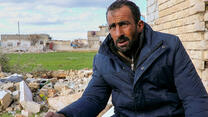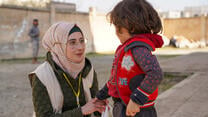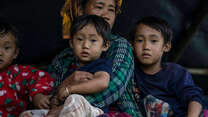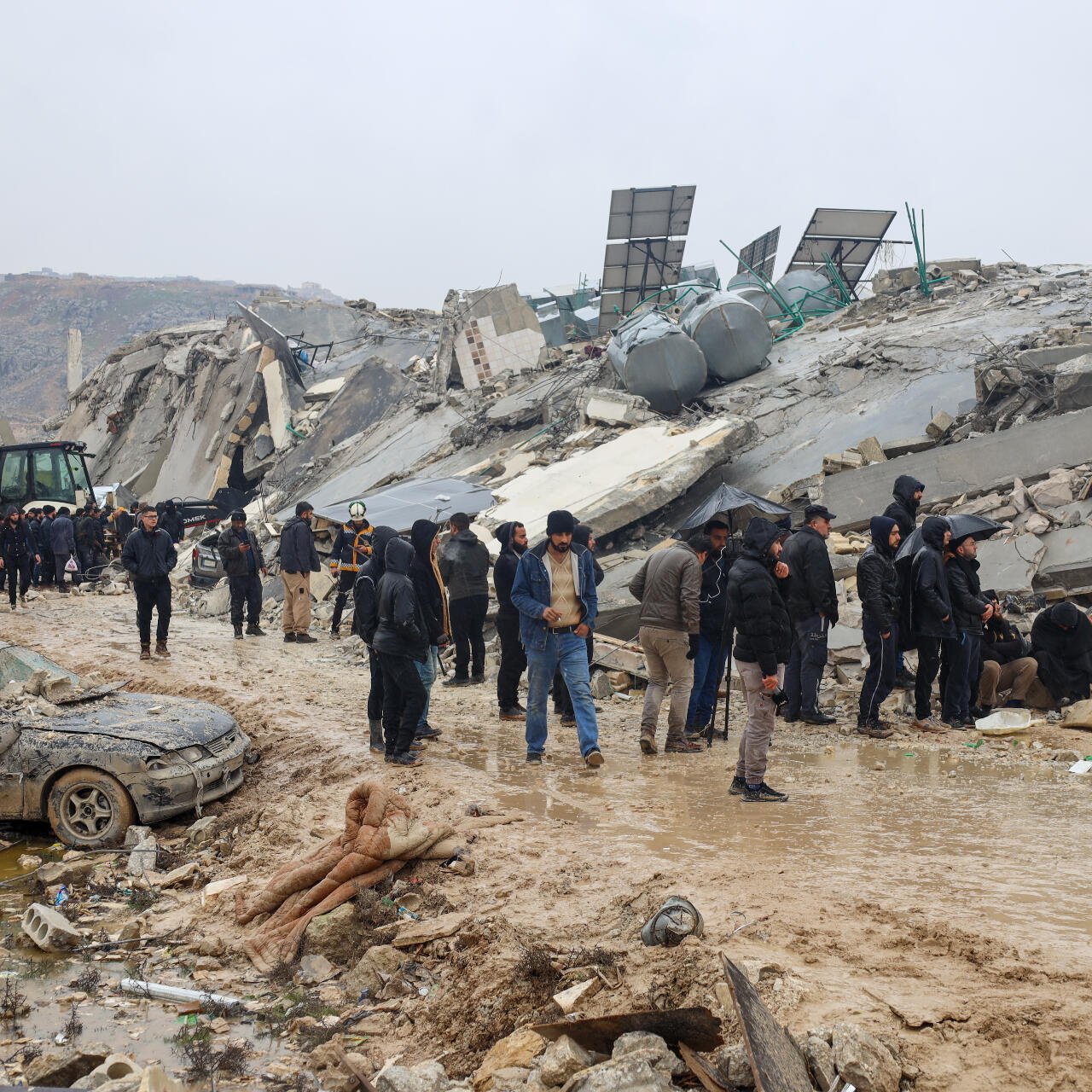
Tens of thousands of people have been killed and many more injured after a 7.8 magnitude earthquake struck southern Turkey on Monday, February 6, just 50 miles from the Syrian border. Since the earthquake there have been hundreds of aftershocks. The strongest was 7.5 magnitude, adding to the devastation.
Additionally, just two weeks later on February 20th, a 6.3 magnitude earthquake struck Hatay province, southern Turkey. Tremors were felt in Syria, Jordan, Lebanon and Iraq, with reports of more buildings collapsing and further fatalities.
Many of the hardest-hit communities are in northwestern Syria, where people who have already been displaced several times by the ongoing conflict are among those whose homes were destroyed in the quakes. They are without adequate shelter, food and basic necessities as temperatures plunge well below freezing.
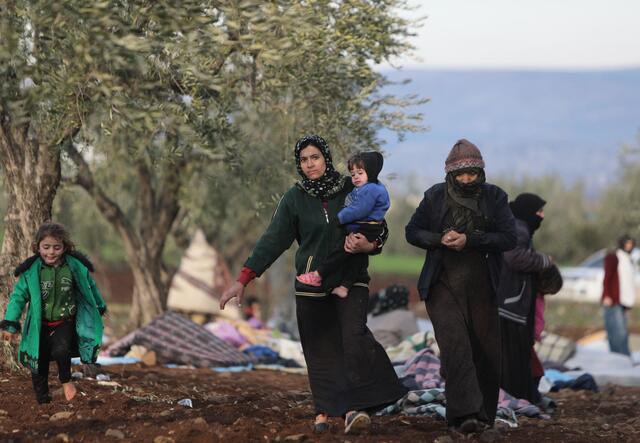
Even before this crisis, more than 15 million people in Syria were in need of humanitarian assistance. However, aid have efforts received less than half of the necessary funding.
How can I help earthquake victims?
Funding is urgently needed to help people affected by the earthquakes survive this crisis and begin their recovery. The IRC has more than 1,000 staff inside Syria who are working tirelessly to provide lifesaving support. We will be scaling up our response to support affected communities in Turkey as well.
Double your impact: For a limited time, monthly donations will be doubled as we rush to support this crisis and all children and families in urgent need this winter.
The IRC is consistently awarded high marks by charity watchdog groups for our efficient use of financial support and the effectiveness of our work.
What is the IRC doing to support victims?
The IRC immediately responded to the crisis by providing immediate cash assistance, as well as critical financial support to 10 of our partner organizations working in northwest Syria and Turkey. We are launching an integrated response to support affected communities in northwestern Syria and Turkey as humanitarian needs soar in both countries.
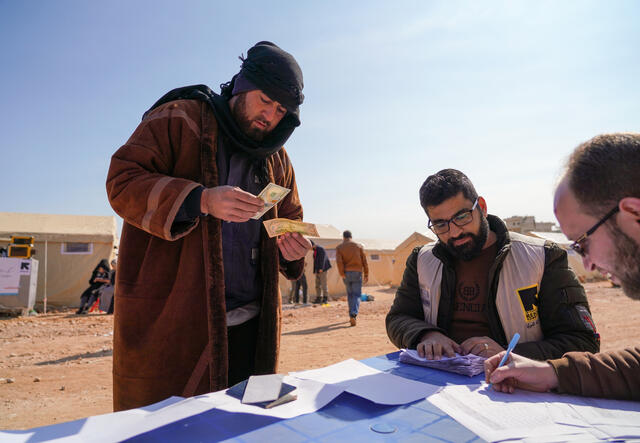
This will include providing thousands of households with cash and essential items, such as household kits, dignity kits for women and girls and hygiene supplies including towels and blankets. As part of our work to support essential health services in affected areas, the IRC is launching two mobile health teams which will provide treatment and care to survivors. We will also set up safe spaces for women and children affected by the crisis.
“People have lost everything—their homes, their children, their source of living,” says Hamed*, the IRC’s Economic Recovery and Development Manager in Syria. "Providing cash is one of the most effective ways to help people cover their urgent needs and get back on their feet."
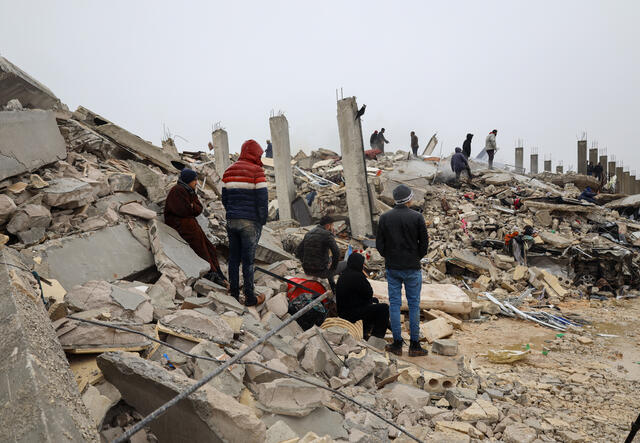
Get informed: How have the earthquakes affected Syria?
The earthquake has compounded an already dangerous humanitarian crisis in Syria, which landed the country on the IRC’s 2023 Emergency Watchlist. Prolonged conflict in the country has weakened Syria’s health system, which has also been strained by a cholera outbreak, and made it difficult for aid to enter the country.
“Many in northwest Syria have been displaced up to 20 times,” says Tanya Evans, the IRC’s Syria country director, “and with health facilities strained beyond capacity, even before this tragedy many did not have access to the health care they critically need.”
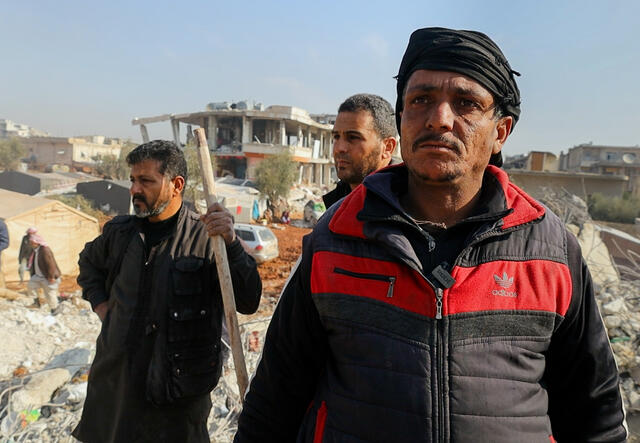
The recent earthquake and following aftershocks destroyed thousands of homes in a region where 2 million people were already lacking adequate shelter. The damage also caused electricity, internet and cellular outages and disrupted gas supplies people rely on for heat.
“The scale of the destruction is catastrophic,” explains Evans. “With the response in its infancy the need for humanitarian aid is stark.”
Spread the word
Continued support is needed as first responders and organizations like the IRC work to respond to the emergency. Share this Instagram post to help raise awareness of this crisis within a crisis in Syria.
Learn more about the impact of the Syria-Turkey earthquake here.
Donate today to send aid to people in Turkey, Syria and crisis zones worldwide.
*Pseudonym used for privacy.
